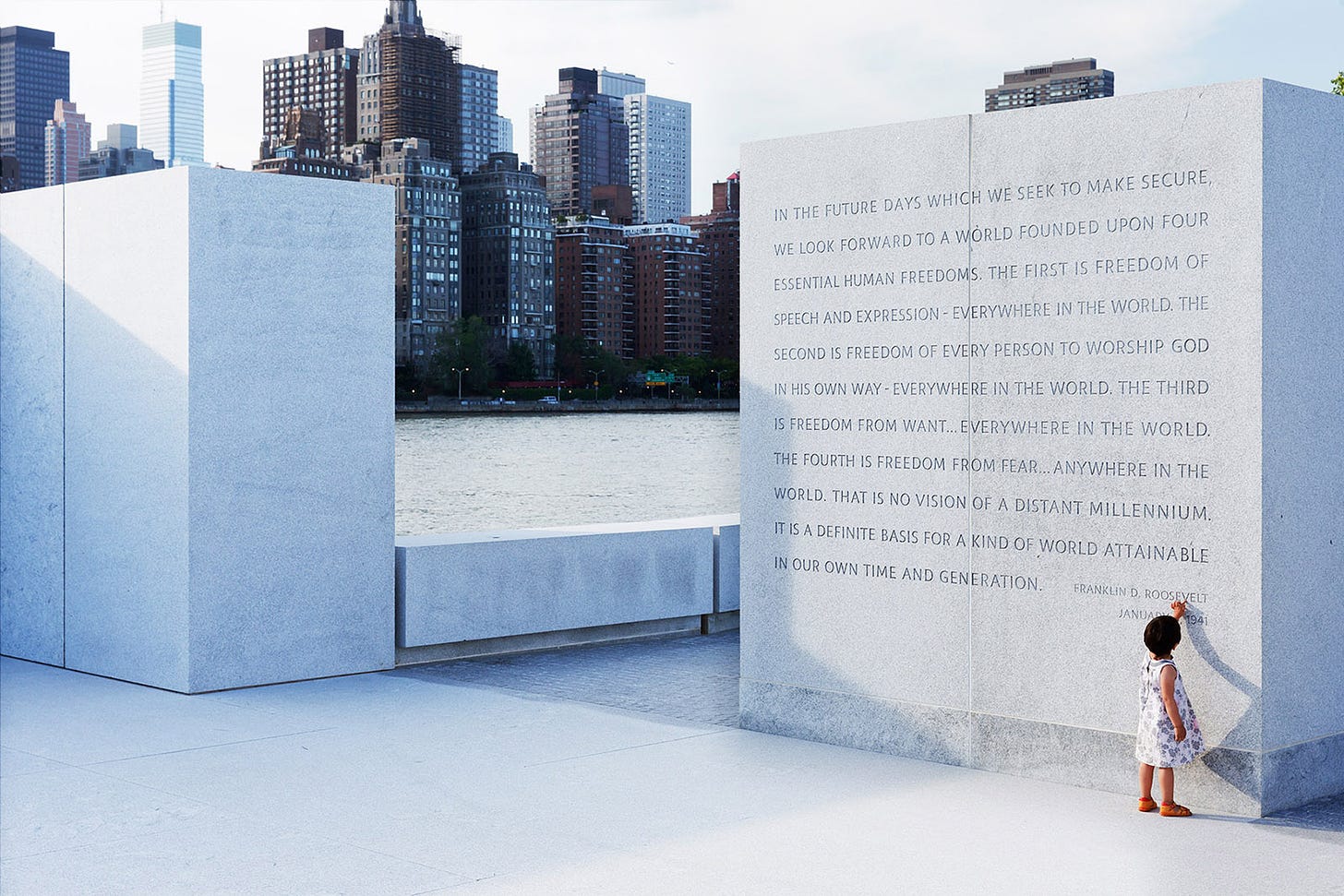America Has a Freedom from Want and Fear Problem
Free speech gets all the coverage but Americans across the spectrum really want more economic security and better public safety.

A hotly debated New York Times editorial board piece entitled, “America Has a Free Speech Problem” based on comprehensive polling by Siena College, argues that the country is losing its historical commitment to pluralism as it descends into “a destructi…
Keep reading with a 7-day free trial
Subscribe to The Liberal Patriot to keep reading this post and get 7 days of free access to the full post archives.



